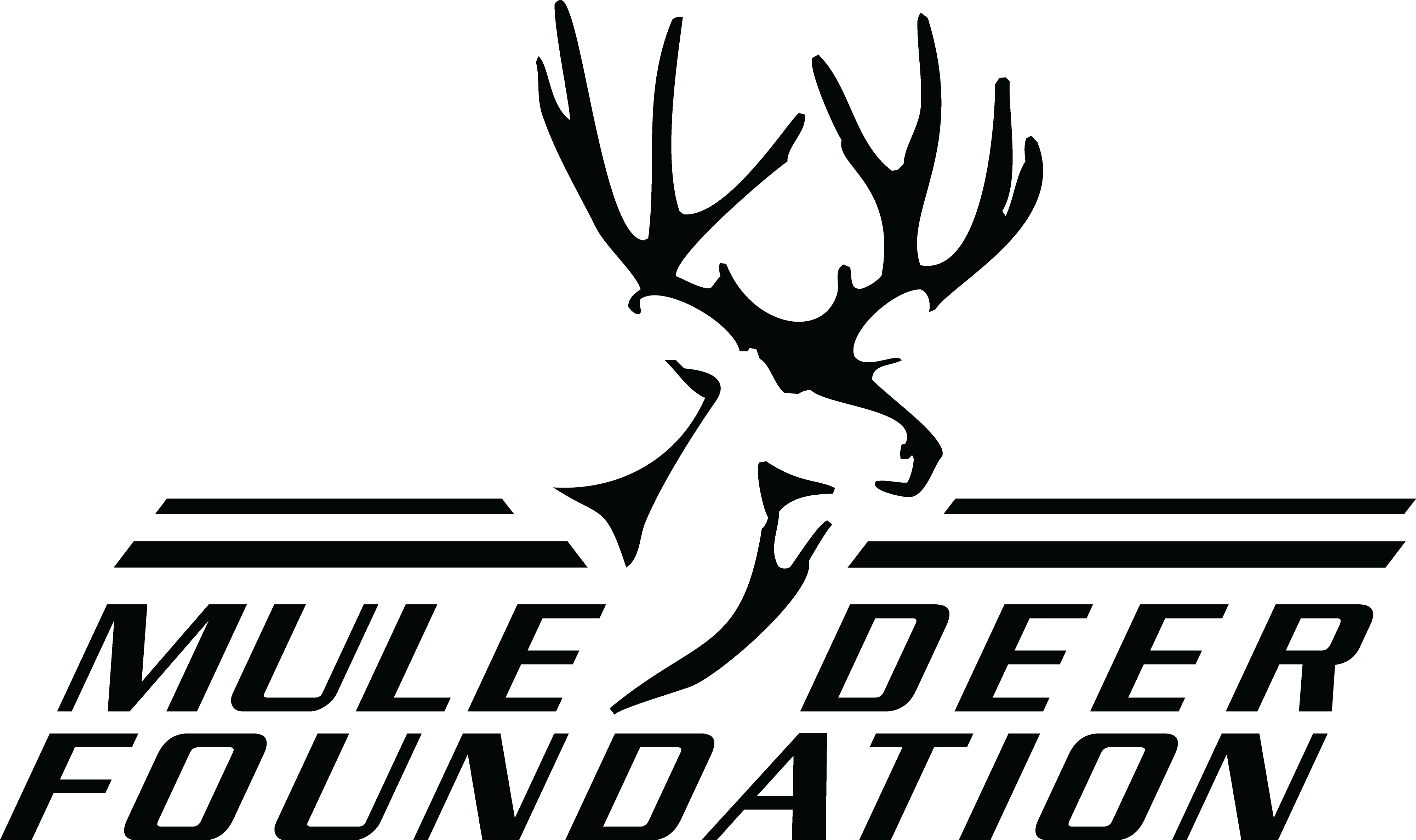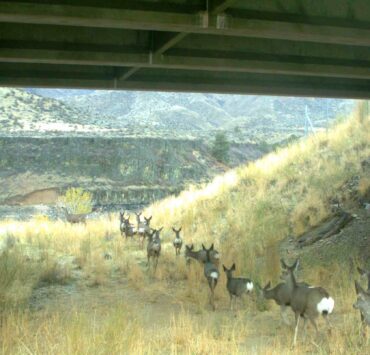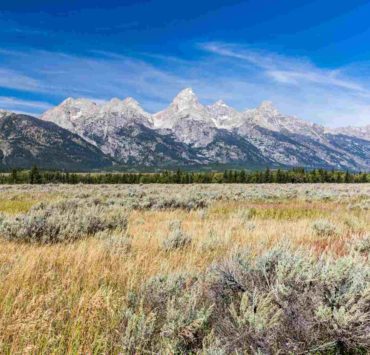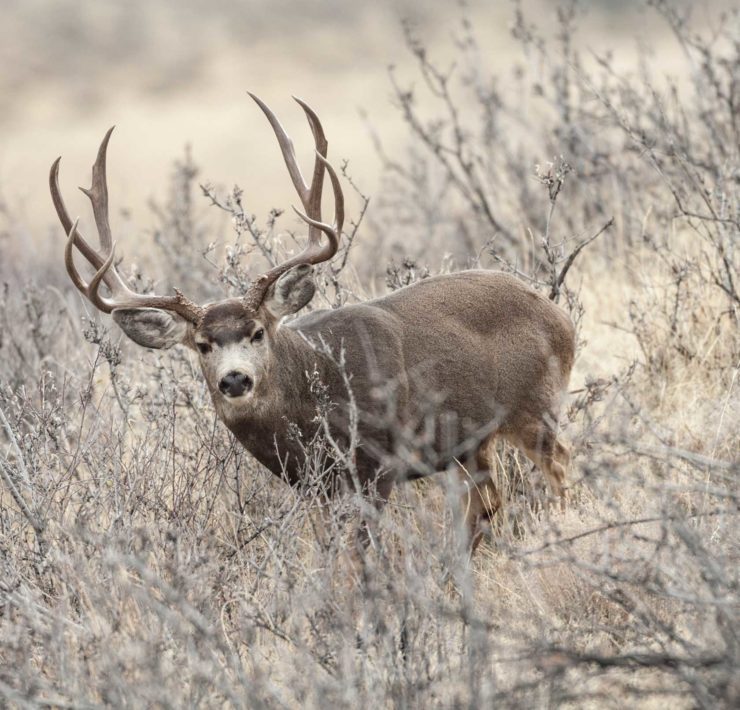Utah State Spotlight
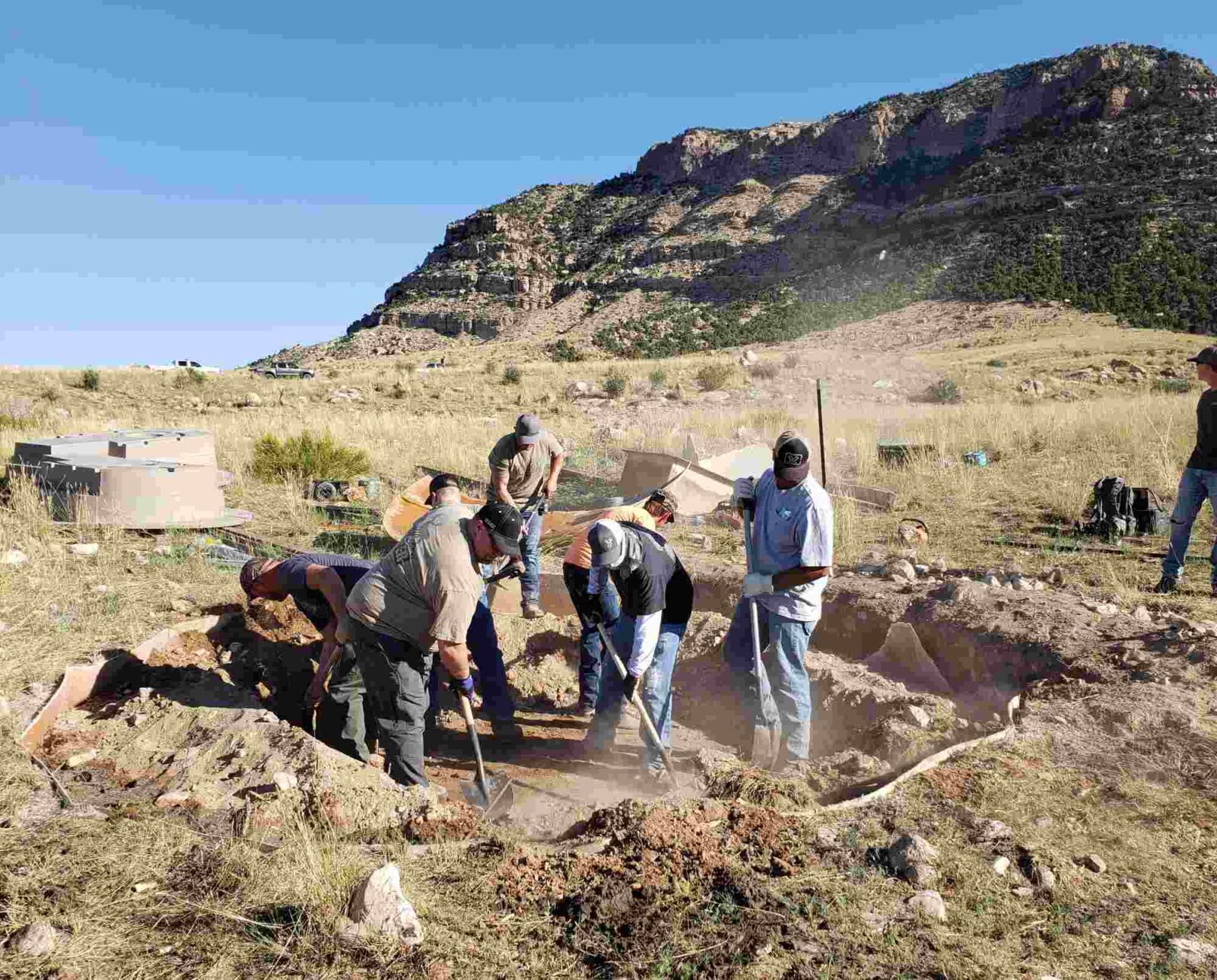
The Mule Deer Foundation is the only conservation group in…
Winter 2021
By Jeremy Anderson, Utah Regional Director
As you are reading this, 2020 has finally wrapped up. To say it was an interesting and challenging year would be an understatement. I could write a whole article on how COVID-19 and other major happenings completely devastated 2020. However, I felt like highlighting some of the great experiences we had in 2020 here at Mule Deer Foundation Utah because there were still many positive things for mule deer, conservation, volunteers, and members coming together for Mule Deer Foundation Utah
To start, our annual Western Hunting and Conservation Expo (WHCE) was the biggest and best to date. Hunt Expo features hundreds of booths to book a hunt of a lifetime, score that gear you have been dreaming about, and educate yourself on some- thing you did not know. It’s also the place where we raise a ton of money for conservation with record breaking auctions in our evening events. WHCE is a lot of work for everyone involved, but it is so worth the miles of steps, early mornings, late evenings, and all the pre- and post-work to pull it off. The record attendance every day this year is a reward for everything we do behind the scenes. Getting to meet new people and show them what we have been up to and learning what they have been struggling with or where they see work needs to be done is very rewarding each year.
The banquet season started off with a bang! Canyonlands Chapter out of Moab had record attendees and dollars raised—and with a high efficiency. Sanpete County, Utah County, and Weber Davis all had amazing banquets as well. The year was looking to be a banner year for conservation dollars. Then the day after our Weber Davis banquet on March 14, we were shut down on any sort of gathering. Clearly not knowing the severity of the virus, we all thought we would be back at it in a month or two. As it turned out, I was able to do only four of the 15 chapter events planned.
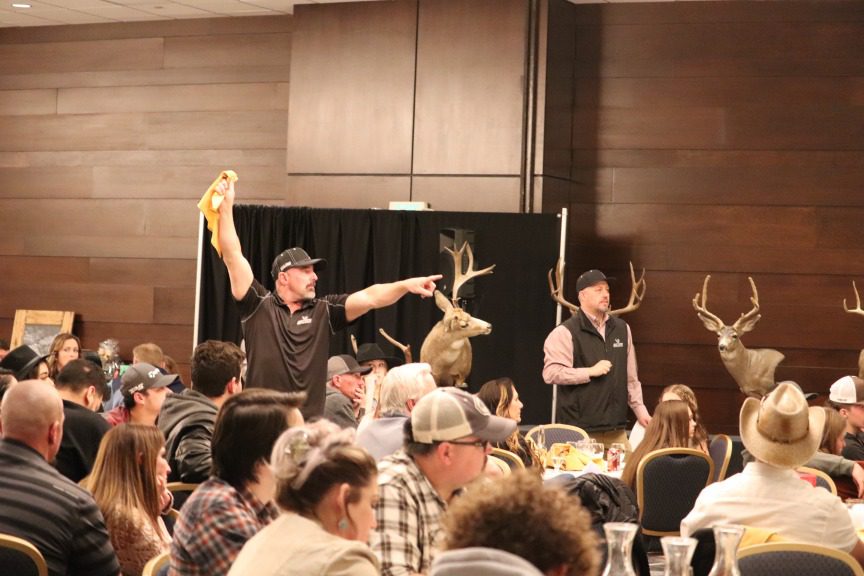
The next few months had plenty of frustration and anxiety. Being a non-profit and not doing fundraising events is a recipe for disaster. When 89 cents of every dollar goes to accomplish our mission and 11 cents goes to keeping the doors open, we had to find other ways to meet those needs.
Here in Utah we have tried many ways to do what we could do. I personally want to thank our supporters for donating to each raffle, online silent auction, and sweepstakes we have done. You are 100 percent making a difference. I also want to thank the chapters across Utah for holding their own raffles to help Utah funding. We have done everything from Henry rifles, Kimber pistols, coolers, Hoyt bows, Badlands gear, and on and on. Trying to put these raffles together with items that I think is what you want was tough. But you, the members of MDF, sup- porters, committee members, and mule deer enthusiasts have been there every time. Thank you from the bottom of my heart. We will continue to do them, giving you a chance to win a gun or cool gear and to stay relevant in your minds.
Attempting to raise money is not all we did though. We were able to pull off some much-needed conservation projects across the state. In partnership with the Division of Wildlife, we planned, funded, and executed multiple projects. I want to thank the chapters for pushing to complete these projects when some- times we were working in 95-100+ degrees. There is nothing more re- warding than the sweat equity you put into mule deer habitat. Darren West, our project coordinator for the state, absolutely killed it this year. Having Darren is certainly a blessing. He has a great relationship with biologists so presenting a project idea and location to them always goes easy. There are so many projects to highlight and if you go back to older issues you will see them all highlighted as they are completed, but I do want to hit on a few again.
Another huge help this year came from Utah County Chapter committee member, Robert Thornock. Robert took on what I would say was the dirty work! On Mount Loafer there were a few existing guzzler sites where the DWR had flown in some apron material to catch the water and funnel it into the existing tanks. Robert and a couple awesome volunteers hiked in about 1.5 hours with post hole pounders, drills, and other tools on their back to install these aprons. Little did they know, the guzzlers were damaged from what appears to be bears jumping on them. Robert and crew were able to repair the guzzlers and install the apron. This was a very long day, and they worked their tails off. You would think that would be enough for Robert, but no, he went back again to install new tanks in other areas along with the aprons. Overall, Robert worked and managed hours and hours of hard work. We are beyond thankful to have him as a project lead for our state. Darren and I and the folks reading this thank you, my friend!
Utah County, West Desert Chapters did what they normally do and put in multiple hours of guzzler, fencing, and stream work and repair. But we also had some great additions to chapter involvement this year. The San Rafael Chapter from Carbon and Emery County pulled off a massive project in two different locations. The Uinta Basin Chapter out of Vernal/Roosevelt also took on what I thought was too much. Four guzzlers in four different locations on the Book Cliffs. And, while it should not surprise me anymore, the committee and great volunteers completed all four in one day. Again, other chapters completed projects as well that I have covered in previous articles. Please take a minute to go back and read them if you have time.
With all the project work over the summer and raffles via social media, it was a great joy to pull off a live event. In September, we were able to do a smaller banquet in Richfield thanks to Jim Freeby and the rest of that great commit- tee. We followed all health protocols and were able to socially distance and pull off an absolutely great night! We had tons of raffles, silent auction items, and games to entertain the crowd. Thanks to all that were able to attend – you truly made a huge difference. Oh, and by the way, two weeks later to the day Jim and crew installed a guzzler with post and rail fencing and apron. They not only talked the talk, but they also walked the walk!
I would like to finish by telling you about our funding during our Watershed Restoration Initiative (WRI) meeting. First off, it was odd not to meet with the other groups and DWR employees face to face but, as most of you know, all meetings like that have changed to Zoom meetings. WRI is where we get together and spend the funds we raised from our auction tags, WHCE, and local fundraising.
Biologists pitch a project to us in their region which are ranked high to low for all wildlife. Obviously, we seek out the highly ranked mule deer projects. But we also love to fund projects that help all wildlife. A project may cost $185,000 and we all are able to pitch in what we want to get to that total. Some- times, if it is near and dear to us, we fund it outright. This year we spent a record $1,529,822 dollars! This is money that is going to enhance mule deer habitat as well as fund mule deer studies such as fawn collaring and migration initiatives where we try to learn more about this iconic animal.
We are doing amazing things thanks to your continued support – and we need more help than we ever have before. As always, to keep track of all things Mule Deer Foundation Utah, follow us at Mule Deer Foundation/Utah on Facebook and muledeerfoundation_utah on Instagram.
The Mule Deer Foundation is the only conservation group in North America dedicated to restoring, improving and protecting mule deer and black-tailed deer and their habitat, with a focus on science and program efficiency. MDF is a strong voice for hunters in access, wildlife management and conservation policy issues. MDF acknowledges regulated hunting as a viable management component and is committed to recruitment and retention of youth into the shooting sports and conservation. Get involved in your state or become a member at www.muledeer.org or call 1-888-375-3337.


